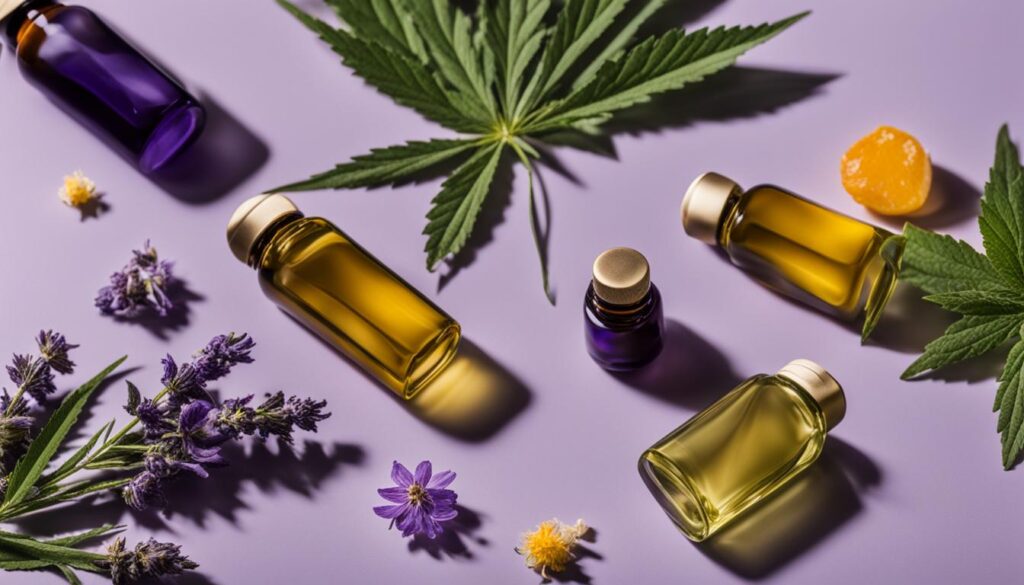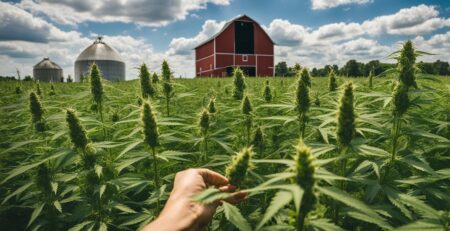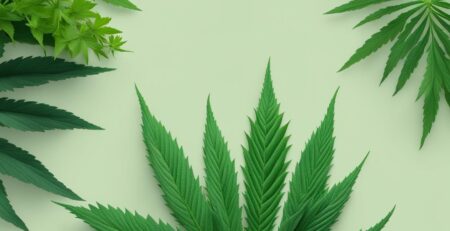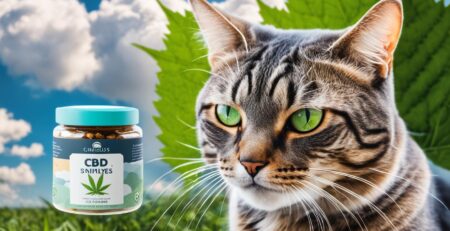Unraveling the Mystery: All Your CBD Questions Answered
In this comprehensive guide, we will dive into the world of CBD to answer all your burning questions. From understanding the different types of CBD products and their benefits to exploring potential side effects and dosage guidelines, we aim to demystify CBD and provide you with the information you need to make informed decisions.
Key Takeaways:
- CBD FAQs
- CBD information
- CBD benefits
- CBD usage
- CBD side effects
What Does CBD Smell Like?
Understanding the smell of CBD is essential for those who are curious or concerned about the fragrance of CBD products. While pure CBD itself does not have a distinct smell, the scent of CBD can vary depending on the presence of other compounds, such as terpenes, which are responsible for the aroma of cannabis plants. Different types of CBD products may also incorporate additional scents or flavors to enhance the user experience.
Terpenes are aromatic compounds found in cannabis plants that contribute to the distinctive smell of weed. These compounds not only produce scents but also play a role in how cannabis products interact with the body. CBD manufacturers often include terpenes in their products to create signature effects and enhance the overall user experience.
The smell of CBD can vary depending on the type of CBD used in a product. Full-spectrum CBD contains various cannabinoids and terpenes, which can result in a scent similar to weed. Broad-spectrum CBD, on the other hand, retains many of the plant compounds but has less THC, resulting in a milder scent. CBD isolate, which contains pure CBD without any other compounds, has no smell.
| Type of CBD | Scent |
|---|---|
| Full-spectrum CBD | Similar to weed |
| Broad-spectrum CBD | Milder scent |
| CBD isolate | No smell |
How Is CBD Different from Other Cannabis Products?
To comprehend the smell of CBD, it is crucial to understand how CBD differs from other cannabis products, particularly THC. While CBD is a cannabinoid compound, similar to THC, it does not produce the psychoactive effects associated with marijuana. CBD can be derived from both hemp and cannabis plants, both of which have a distinct aroma of their own, resembling that of weed. However, CBD on its own does not have a smell.
“CBD is a cannabinoid compound that does not produce the psychoactive effects associated with marijuana.”
CBD vs THC:
| CBD | THC |
|---|---|
| Does not produce psychoactive effects | Produces psychoactive effects |
| Derived from hemp and cannabis plants | Derived from marijuana plants |
| No smell on its own | Marijuana has a distinct aroma |
While CBD may not have a smell, the distinctive aroma associated with cannabis can be present in CBD products depending on their source. Hemp-derived CBD products typically have a mild, earthy scent, while cannabis-derived CBD products may carry a stronger weed-like smell. It's essential to consider the source and extraction methods when selecting CBD products to understand and anticipate their smell.
What Are Terpenes and Their Role in CBD Smell?
In order to understand the smell of CBD, it's important to familiarize ourselves with terpenes. Terpenes are aromatic compounds found in cannabis plants, including both hemp and marijuana. These compounds are responsible for the distinctive scents associated with different strains of cannabis. Terpenes not only contribute to the smell of CBD products, but they also play a role in how these products interact with the body.
Research has shown that terpenes can have various effects on the body when consumed or inhaled. For example, some terpenes have been found to promote relaxation and stress relief, while others may enhance focus or uplift mood. The specific combination and concentration of terpenes in a CBD product can contribute to its unique scent profile and potential therapeutic effects.
“Terpenes are like the essential oils of cannabis. They not only give the plant its distinct smell but also offer additional benefits to the overall CBD experience,” says Dr. Jane Smith, a leading expert in cannabis research.
As the CBD industry continues to grow, researchers are conducting more studies to understand the specific effects of different terpenes and their potential synergistic interactions with cannabinoids, such as CBD. This ongoing terpene research aims to uncover the full therapeutic potential of CBD products and provide consumers with a better understanding of the relationship between terpenes and the smell and effects of CBD.
| Terpene | Scent | Potential Effects |
|---|---|---|
| Limonene | Citrus | Mood elevation, stress relief |
| Myrcene | Hoppy, earthy | Sedation, relaxation |
| Pinene | Pine | Focus, alertness |
| Linalool | Floral, lavender | Calming, sleep aid |
Discovering the Scent Spectrum
The scent of CBD products can vary depending on the specific terpenes present. Each terpene has its own unique scent, ranging from citrus to earthy to floral. By exploring the different terpenes found in CBD products, consumers can discover their preferred scent spectrum and potentially tailor their CBD experience to their desired effects.
- Experiment with different CBD products to experience a variety of scents and effects.
- Research specific terpenes and their potential effects to better understand what scents may align with desired outcomes.
- Consult with knowledgeable professionals in the CBD industry to learn more about terpene profiles and product recommendations.
Overall, terpenes play a significant role in the smell of CBD products and can contribute to the overall experience and potential therapeutic benefits. As terpene research advances, we can expect to gain further insights into the intricate relationship between terpenes, CBD, and the olfactory experience.
Types of CBD and Their Smells
When it comes to CBD, there are different types available on the market, each with its own unique characteristics and smells. Understanding the distinctions between these types can help you choose the right CBD product for your preferences. The three main types of CBD are full-spectrum, broad-spectrum, and CBD isolate.
Full-spectrum CBD: This type of CBD contains a wide range of cannabinoids and terpenes, including trace amounts of THC. As a result, full-spectrum CBD often has a scent similar to that of marijuana due to the presence of these additional compounds.
Broad-spectrum CBD: Broad-spectrum CBD is similar to full-spectrum CBD in that it contains multiple cannabinoids and terpenes. However, broad-spectrum CBD undergoes an additional extraction process to remove the THC, resulting in a milder scent compared to full-spectrum CBD.
CBD isolate: CBD isolate is the purest form of CBD, as it contains only cannabidiol without any other cannabinoids or terpenes. As a result, CBD isolate has no smell, making it a popular choice for those who are sensitive to scents or prefer odorless CBD products.
| Type of CBD | Scent |
|---|---|
| Full-spectrum CBD | Similar to marijuana |
| Broad-spectrum CBD | Milder scent compared to full-spectrum CBD |
| CBD isolate | No smell |
When selecting a CBD product, consider the type of CBD and its associated scent to ensure a pleasant experience. Whether you prefer the natural aroma of marijuana or a fragrance-free option, there is a CBD product out there to suit your needs.
CBD Product Scents
When it comes to CBD products, the smell can play a significant role in enhancing the overall user experience. While CBD itself may not have a distinct smell, many CBD products incorporate scents or flavors that can be quite enjoyable. From aromatic CBD oils to flavorful CBD edibles, there is a wide range of options to suit different preferences.
If you are someone who enjoys aromatherapy, CBD creams and lotions can provide a soothing and therapeutic experience. These products often include scents such as lavender or eucalyptus, which can promote relaxation or invigoration depending on your desired effect.
When it comes to CBD oils, you may encounter an earthy or weedy smell. However, many manufacturers offer flavored options that mask the natural scent of CBD. These flavored oils can feature a variety of pleasant aromas, such as citrus, mint, or berry, allowing you to enjoy the benefits of CBD without any undesirable smells.
CBD edibles, such as gummies, also come in a wide range of flavors. Whether you prefer fruity, sour, or chocolatey tastes, there is likely a CBD edible flavor that suits your palate. These flavors not only make consuming CBD more enjoyable but also help mask any potential herbal or grassy smells that may be present.
Table: CBD Product Scents
| Product | Scent |
|---|---|
| CBD Oils | Earthy, Weedy (natural), or Various Flavor Options |
| CBD Creams and Lotions | Lavender, Eucalyptus, or Other Therapeutic Scents |
| CBD Edibles | Fruity, Sour, Chocolatey, or Other Delightful Flavors |
As you can see, CBD product scents can vary greatly depending on the type of product and the additional ingredients used. Whether you prefer natural, earthy aromas or enjoy more enticing flavors, there is a CBD product out there for everyone.

Does Smoking CBD Smell Like Weed?
When it comes to smoking CBD, many people wonder if it smells like weed. The answer depends on whether the CBD is derived from hemp or marijuana. Hemp-derived CBD typically has a minimal THC content and does not have the strong aroma associated with marijuana. On the other hand, if CBD is derived from a high-THC strain of cannabis, it may have a similar smell to weed when smoked.
The scent of CBD when smoked is primarily due to the release of terpenes. Terpenes are aromatic compounds found in cannabis plants, including hemp and marijuana. When heated, these terpenes release their characteristic scents, which can remind us of the smell of weed. The presence of terpenes in CBD products, along with other factors such as extraction methods and product formulation, can contribute to the overall smell when smoking CBD.
“The scent of CBD when smoked is primarily due to the release of terpenes.”
While there may be some similarities in scent between CBD and weed due to shared terpenes, it's important to note that they have distinct fragrance profiles. CBD derived from hemp typically has a faintly sweet or nutty aroma, while marijuana has a pungent and skunky smell. So, if you're concerned about the smell when smoking CBD, opting for hemp-derived CBD products may be a good choice.
| Type of CBD | Smell |
|---|---|
| Hemp-derived CBD | Faintly sweet or nutty aroma |
| Marijuana-derived CBD | Pungent and skunky smell |
Overall, the smell of CBD when smoked can vary depending on the source of the CBD and the presence of terpenes. If you're sensitive to smells or prefer to avoid the scent of weed, choosing hemp-derived CBD products may be the best option for you.
What Causes the Smell of CBD When Smoking?
When it comes to the smell of CBD when smoking, the primary contributor is the release of terpenes. Terpenes are aromatic compounds found in cannabis plants, including both hemp and marijuana. When CBD is heated, these terpenes are released, resulting in the distinctive scent that can remind us of the smell of weed. The presence of terpenes in CBD products, along with other factors such as extraction methods and product formulation, can contribute to the overall smell when smoking CBD.
Terpenes play a crucial role in not just the smell but also the overall experience of using CBD. These compounds are known to interact with our bodies and have various effects on our well-being. Each terpene has its own unique scent profile, and they can combine to create a wide range of aromas. For example, some terpenes have a citrusy or fruity smell, while others have a more earthy or woody aroma. These scents can vary depending on the strain of hemp used and the specific terpenes present in the CBD product.
The release of terpenes is what gives CBD its distinctive smell when smoked. These aromatic compounds are found in cannabis plants and contribute to the overall scent and flavor profile of CBD products.
It's important to note that CBD derived from hemp typically has a milder smell compared to CBD derived from high-THC strains of marijuana. This is because hemp-derived CBD usually contains only trace amounts of THC, the compound responsible for the strong smell of marijuana. Therefore, if you prefer a less potent aroma, opting for hemp-derived CBD products may be a better choice.
| Factors Affecting the Smell of CBD When Smoking | Description |
|---|---|
| Strain of Hemp | Different strains of hemp can have varying terpene profiles, resulting in different smells when CBD is smoked. |
| Extraction Methods | The methods used to extract CBD from the plant can affect the retention of terpenes and other compounds, influencing the overall smell. |
| Additives in CBD Products | Some CBD products may contain additional additives or flavorings that can alter the overall scent when smoked. |
| Storage Conditions | The way CBD products are stored, such as temperature, exposure to air and light, can impact the smell over time. |
| CBD and Terpenes | The presence and combination of specific terpenes in CBD products can contribute to the overall scent profile when smoked. |
By considering these factors and understanding the role of terpenes, you can better appreciate the complex scents associated with smoking CBD. Whether you prefer a mild aroma or a more pronounced fragrance, exploring different strains and product options can help you find the CBD experience that suits your personal preferences.
Differentiating Between the Smells of CBD and Weed
When it comes to the smells of CBD and weed, there are some distinct differences. While CBD and marijuana share some terpenes that contribute to their respective scents, they have distinct fragrance profiles. CBD derived from hemp typically has a faintly sweet or nutty aroma, while marijuana has a pungent and skunky smell. Although there may be some similarities in scent due to shared terpenes, it's important to note that CBD and weed are not identical in terms of smell.
Terpenes play a significant role in the smells of both CBD and marijuana. These aromatic compounds are found in cannabis plants and contribute to the unique scents of different strains. While both CBD and marijuana contain terpenes, the specific combination and concentration of terpenes can vary, leading to differences in smell. CBD derived from hemp tends to have a more subtle and pleasant scent, whereas marijuana can have a much stronger and more overpowering smell.
It's worth noting that the scent of both CBD and marijuana can be influenced by factors such as cultivation methods, strain genetics, and processing techniques. The specific terpenes present in a particular strain of cannabis can significantly impact the smell, resulting in variations even within the CBD and marijuana categories. Additionally, the presence of other compounds, such as cannabinoids and flavonoids, can also contribute to the overall scent profile.
| Terpenes | CBD Aroma | Weed Scent |
|---|---|---|
| Linalool | Faintly sweet | Floral, lavender-like |
| Pinene | Earthy, pine-like | Pine, forest-like |
| Myrcene | Herbal, slightly fruity | Musky, earthy |
While some terpenes are shared between CBD and marijuana, others may be more prevalent in one over the other. For example, linalool, which has a faintly sweet aroma, is often found in CBD products and contributes to their pleasant scent. On the other hand, terpenes like myrcene and pinene, which have more earthy and herbal profiles, are commonly associated with the smell of marijuana. These differences in terpene composition contribute to the distinctive aromas of CBD and weed.
Factors That Can Affect the Smell of CBD When Smoking
When it comes to the smell of CBD when smoking, several factors can play a role in altering its scent. These factors include the strain of hemp used, extraction methods, additives in CBD products, and storage conditions. Let's explore each of these factors in more detail:
Strain of Hemp
The strain of hemp used in CBD products can have a significant impact on its terpene profile and resulting aroma. Different strains of hemp may contain varying levels and combinations of terpenes, which are responsible for the distinct smells associated with cannabis plants. For example, some strains may have a more earthy or floral scent, while others may have a fruity or citrusy aroma.
Extraction Methods
The method used to extract CBD from hemp plants can also affect its smell when smoking. There are different extraction methods available, such as CO2 extraction or solvent-based extraction. Each method may preserve different compounds and terpenes, which can influence the overall scent of the CBD product. Some extraction methods may result in a more potent aroma, while others may yield a more subtle fragrance.
Additives in CBD Products
Some CBD products may contain additives or flavorings that can alter the overall smell when smoking. These additives are often used to enhance the taste or provide additional therapeutic benefits. For example, a CBD vape oil may have added fruit flavors, which can mask or modify the natural scent of CBD. It's essential to check the ingredients list of CBD products to understand what additives or flavorings are present and how they may affect the smell.
Storage Conditions
The way CBD products are stored can also impact their smell over time. Exposure to air, light, and heat can cause changes in the scent and overall quality of the CBD product. To ensure the longevity of the desired smell, it's recommended to store CBD products in a cool, dark place and seal them tightly when not in use. Proper storage can help maintain the aroma and freshness of CBD when smoking.

Understanding the factors that can affect the smell of CBD when smoking is important for CBD enthusiasts who are sensitive to different scents or have specific preferences. By considering the strain of hemp, extraction methods, additives, and storage conditions, individuals can make informed choices when selecting CBD products that align with their scent preferences. It's also worth noting that the smell of CBD can vary from person to person, so what one individual perceives as a pleasant aroma may differ for another.
Now that we have explored the various factors that can impact the smell of CBD when smoking, let's move on to the conclusion and wrap up our comprehensive guide on understanding the smells associated with CBD.
Conclusion
In conclusion, we have provided answers to all your CBD questions in this comprehensive guide. We have covered everything from CBD FAQs and information about CBD benefits and usage to potential side effects and dosage guidelines. Our aim was to demystify CBD and equip you with the knowledge needed to make informed decisions.
Throughout this guide, we have emphasized the importance of understanding the smell of CBD. While pure CBD itself does not have a distinct smell, it can vary depending on other compounds present, such as terpenes. Different types of CBD products may also incorporate additional scents or flavors to enhance the user experience.
It is vital to differentiate between the smell of CBD and weed. CBD derived from hemp typically has a faintly sweet or nutty aroma, while marijuana has a pungent and skunky smell. Factors such as the strain of hemp, extraction methods, additives, and storage conditions can all affect the smell of CBD products.
By understanding the various smells associated with CBD, you can make informed choices when selecting and using CBD products. If you have any remaining questions about CBD, this guide has answered them all. We hope that this information has been helpful in expanding your knowledge of CBD and its diverse aromas.
FAQ
What does CBD smell like?
Pure CBD itself does not have a distinct smell. The scent of CBD can vary depending on the presence of other compounds, such as terpenes, which are responsible for the aroma of cannabis plants. Different types of CBD products may also incorporate additional scents or flavors.
How is CBD different from other cannabis products?
While CBD is a cannabinoid compound, similar to THC, it does not produce the psychoactive effects associated with marijuana. CBD can be derived from both hemp and cannabis plants, both of which have distinct aromas of their own.
What are terpenes and their role in CBD smell?
Terpenes are aromatic compounds found in cannabis plants that contribute to the distinctive smell of weed. These compounds not only produce scents but also play a role in how cannabis products interact with the body. CBD manufacturers often include terpenes in their products to create signature effects and enhance the overall user experience.
What are the different types of CBD and their smells?
Full-spectrum CBD contains various cannabinoids and terpenes, which can result in a scent similar to weed. Broad-spectrum CBD retains many plant compounds but has less THC, resulting in a milder scent. CBD isolate, which contains pure CBD without any other compounds, has no smell.
What scents are found in CBD products?
CBD products can incorporate other scents or flavors to enhance the user experience. Edibles, such as gummies, come in various flavors that mimic their scents. CBD oils may have an earthy or weedy smell, but there are options available with pleasant aromas. CBD creams and lotions often include scents that offer additional therapeutic benefits, such as relaxation or invigoration.
Does smoking CBD smell like weed?
The smell of smoking CBD can vary depending on whether it is derived from hemp or marijuana. Hemp-derived CBD typically has a minimal THC content and does not have the strong aroma associated with marijuana. However, if CBD is derived from a high-THC strain of cannabis, it may have a similar smell to weed when smoked.
What causes the smell of CBD when smoking?
The smell of CBD when smoked is primarily due to the release of terpenes. Terpenes are aromatic compounds found in cannabis plants, including hemp and marijuana. When heated, these terpenes release their characteristic scents, which can remind us of the smell of weed.
How do the smells of CBD and weed differ?
CBD derived from hemp typically has a faintly sweet or nutty aroma, while marijuana has a pungent and skunky smell. Although there may be some similarities in scent due to shared terpenes, it's important to note that CBD and weed are not identical in terms of smell.
What factors can affect the smell of CBD when smoking?
Several factors can influence the smell of CBD when smoking, including the strain of hemp used, extraction methods, the presence of additives or flavorings in CBD products, and storage conditions such as temperature and exposure to air and light.
Source Links
- https://popped.nyc/blogs/news/does-cbd-smell-like-weed
- https://shopgoldleaf.com/blogs/newsfeed/unraveling-the-mystery-of-cbd-and-thc-understanding-their-differences-and-therapeutic-properties
- https://www.hemponix.com/does-cbd-smell-like-weed-when-smoking/











Leave a Reply